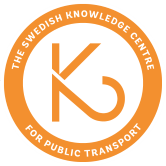Energy efficiency of smart mobility requires instruments for shared mobility
Energy efficiency of smart mobility requires instruments for shared mobility
Automation, the Internet of Things and the Sharing Economy will affect how we travel in the coming decades. "Smart Mobility" is a collective term for these changes. Smart mobility can lead to energy efficiency gains, but it can also lead to increased demand for individual car transport and efficiency losses. Research shows that a key prerequisite for efficiency gains in this context is the share of shared mobility services. Shared mobility refers to multi-user vehicles, including public transport. The emergence of digital technology has made it possible to share vehicles on a larger scale. However, today there is no knowledge about what instruments public actors can apply to control a higher proportion of shared mobility. The purpose of this project is to develop such instruments. Through document analyzes, comparative case studies and workshops, researchers will develop new instruments that can promote shared mobility services in a future of smart mobility.
